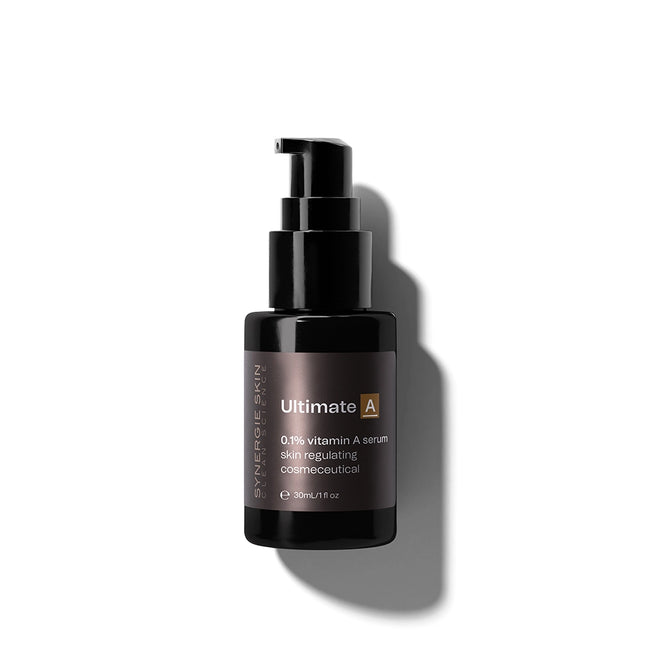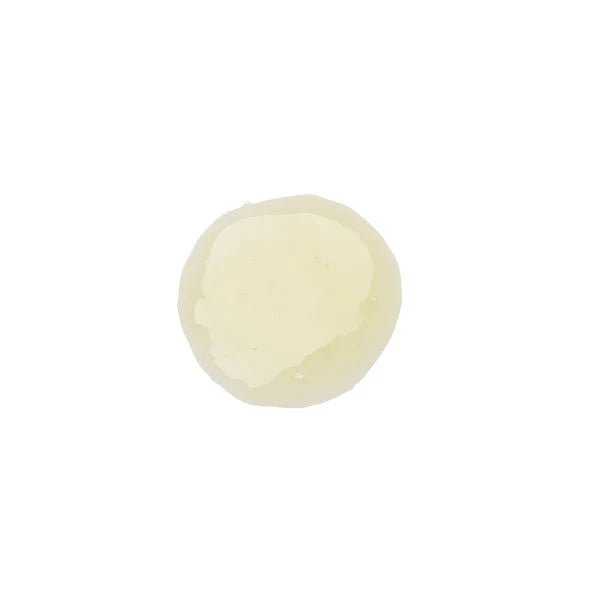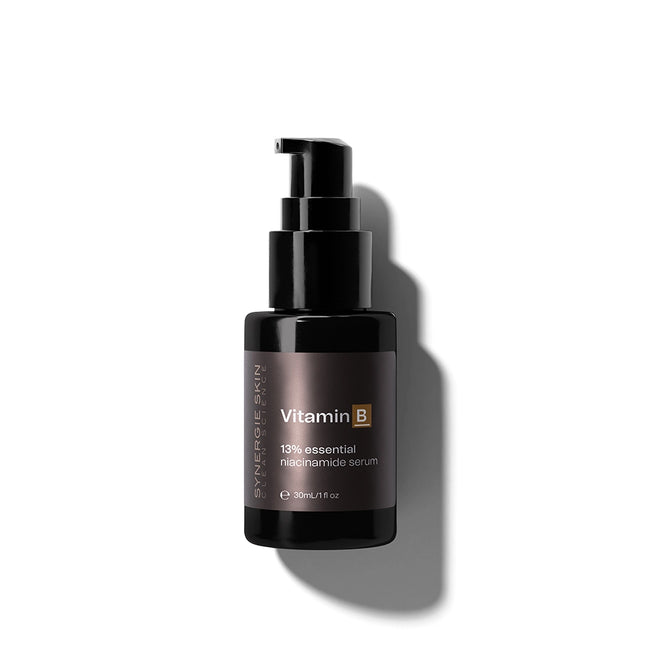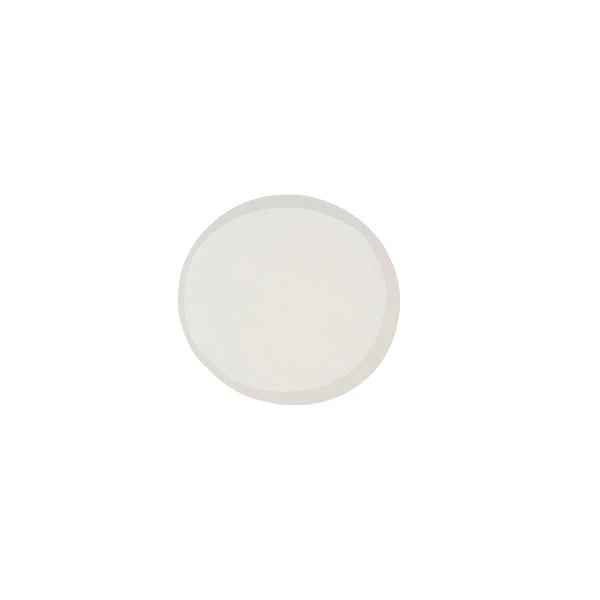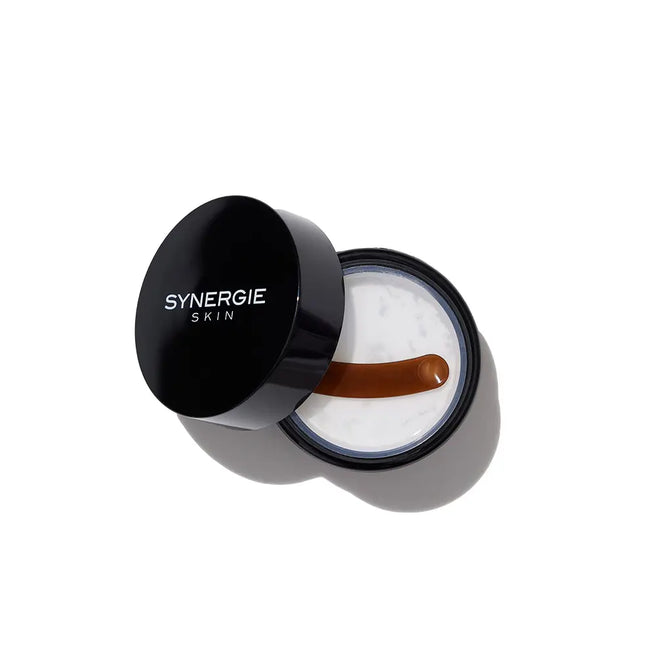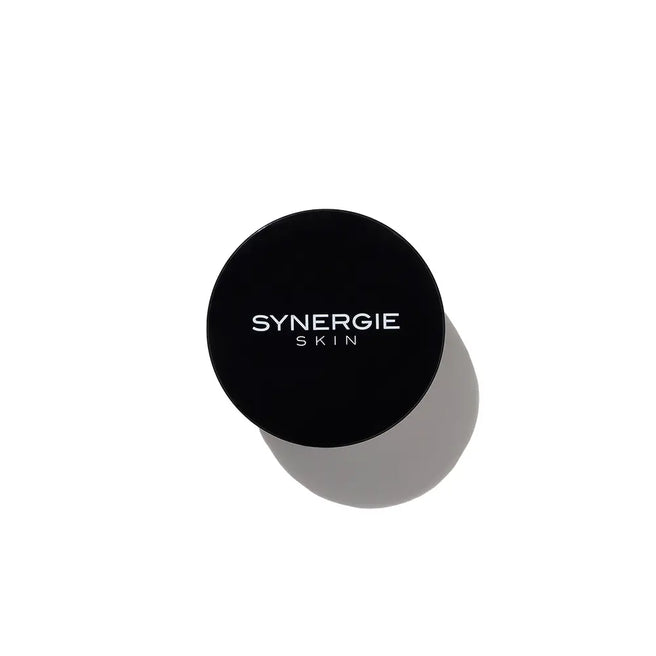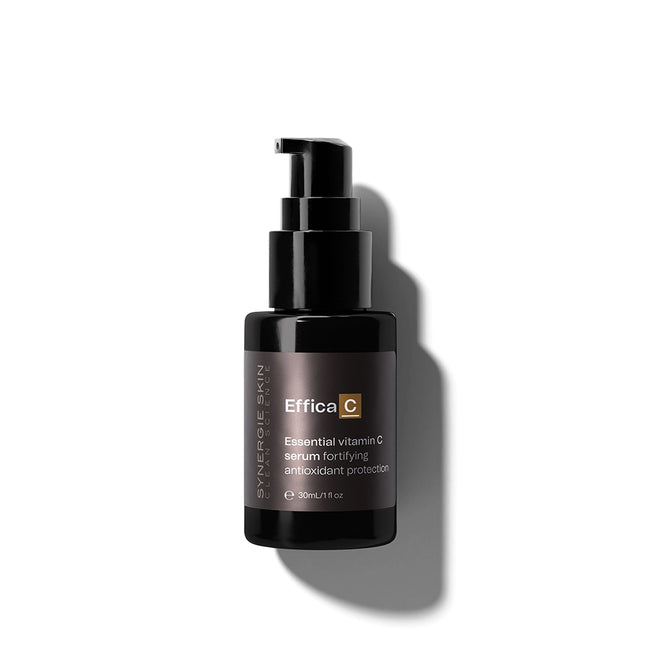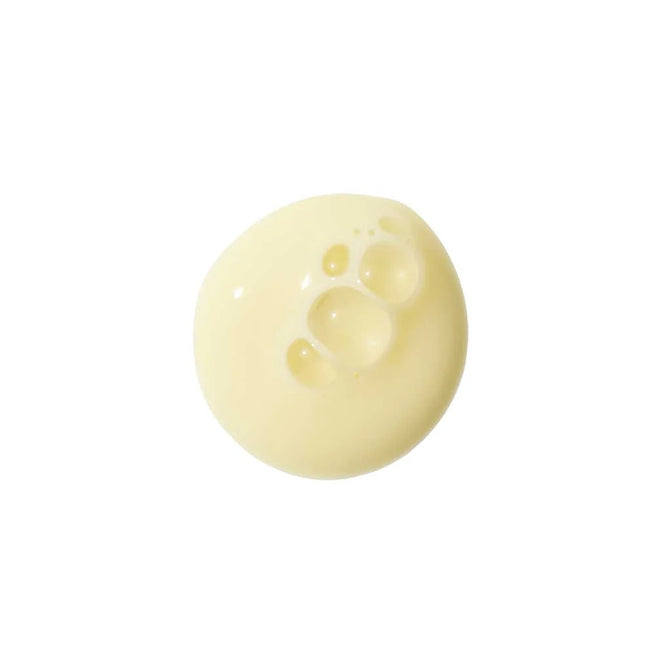I'm often asked my opinion on the decision between using vitamins directly on the skin as serums or moisturisers versus taking them as oral supplements. Here's the lowdown from a scientific perspective on some common supplements that can be applied topically and consumed orally.

Vitamin A
Vitamin A (aka retinoids) are considered the gold standard in any cosmeceutical skincare regimen. Topical vitamin A, such as Synergie Skin's Ultimate A, is now used to treat over 125 skin disorders including, acne, sun damage, hyperpigmentation and even dermatitis. Prescription forms of retinoids, commercially known as Steva-A, Retin-A and Differin, are effective but can cause negative side effects such as skin dryness and irritation. Many patients discontinue use on this prescription form due to these side effects.
Nonprescription Retinol, as a stabilised molecule is now considered the ideal form of delivering topical vitamin A with maximum stability and effectiveness and minimal irritation. Vitamin A is a fat-soluble vitamin and, as such, can accumulate in the tissues if taken orally in high doses. Standard low dose vitamin A supplements have been clinically evaluated in terms of treating skin conditions such as acne. Results suggest that low dose oral supplementation may be ineffective at raising whole-body vitamin A levels.
Topical administration of vitamin A on a daily dosing schedule achieved levels up to 4-fold higher than standard vitamin A supplementation. Oral doses of over 1000 IU of vitamin A can, however, lead to severe side effects such as headaches, blurred vision, skin dryness and even reduced muscle function. In terms of treating the skin, topical retinol is the winner here.

Vitamin B3 (Niacinamide)
Topical vitamin B3 is truly the multitasking skin vitamin, found in Synergie Skin's Vitamin B. It is used to treat acne, inflammation, fine lines, dehydration and flaking skin, pigmentation and even skin immunity. Niacinamide is able to work on so many levels when used topically and everyone will benefit from this skin vitamin. Vitamin B3 is found in a variety of food including green vegetables, grains, eggs, dairy products, meat, fish, milk, and grains. This leaves it very difficult to have a B3 deficiency in modern society with the diverse food choices available. Current studies from The National Institute of Health suggests that B3 works more effectively on the skin when used topically rather than orally, particularly for treating acne, redness and dehydration. Furthermore, because B3 is a water soluble vitamin, it is not stored in the body so what is not used by the body is rapidly excreted. Once again, topical vitamin B3 wins here.
Vitamin C
Vitamin C in a form of L-ascorbic acid, such as Synergie Skin's Pure-C Crystals, and an essential component of skin health as an antioxidant, a critical factor for collagen synthesis and as a brightener. Vitamin C is crucial to photo-protection, decreases UV damage, and is very effective for wound healing. Topical application of vitamin C appears to be a very effective route for delivering L ascorbic acid to the skin. L ascorbic acid crystals are taken up by skin cells readily at an acidic pH below 3.5. Because of the instability of L-ascorbic acid in water, it is best to purchase it as a dry, refined powder that can be mixed directly with a serum at the time of application.
Alternatively, some L-ascorbic topicals are now available in a moisturising lightweight oil base, such as Synergie Skin's EfficaC. Since this base is water free, it is stable, active and protected from degradation for two years. There is a variety of vitamin C supplements on the market. In my opinion one of the best supplements for fighting internal free radical damage is the esterified form of vitamin C (C-Ester) which is more readily available to the cells compared to traditional L-ascorbic acid supplements. Data suggests that oral vitamin C in sufficiently high doses is effective in protecting against UV free radical damage and can aid in skin healing. It is also important to ensure vitamin C supplementation is coupled with other micronutrients, such as vitamin E, iron and zinc.
Overall, the most conclusive clinically proven results for visible skin improvement is seen in topical L-ascorbic skincare over supplements. My advice is to ensure you have a diet rich in natural sources of vitamin C (fruits and veggies) and ensure adequate levels of iron and vitamin E are consumed. If the diet is low in C, esterified vitamin C is very effective.
Collagen
Collagen is the scaffolding of our skin and maintains a firm and youthful appearance. Collagen is continually produced by skin cells but this slows as we age. Other factors such as UV and IR light, pollutants, cigarette smoke and dietary deficiency can destroy, damage and retard collagen production. There is a rising market, particularly in Europe and Asia, for collagen supplements and drinks. Please, give me a break! Collagen is simply a protein. As soon as it hits your stomach the acid breaks it down so it can be digested in the small intestine as amino acids, the basic protein building blocks. The collagen does not reassemble after it is absorbed by the body and collagen molecules you ingest will never reach your cells intact. There is no difference between taking a collagen supplement and eating a high protein serving of meat, fish, legumes or eggs! I can guarantee that collagen will definitely make no difference to the appearance of skin, and the story gets worse.
Collagen in skincare is also a total waste of money! One of the most important elements of effective skincare is the ability of the ingredient to penetrate the skin barrier to create a physiological change in the skin. Collagen is a massive protein molecule that is too large to penetrate the skin. It’s like trying to post a fit-ball in a letterbox! It is the tiny amino acids in skin care products (aka peptides) that can penetrate and make a difference. Neither collagen supplements or topical collagen skincare will make a difference to your skin.
The bottom line:
As a cosmetic chemist, my advice is to consume a balanced diet with minimally processed food, coupled with quality supplements as required. Combined this with a cosmeceutical skin care regimen to specifically target your skin concerns and you'll address it from inside and out. Today’s Western diet is very high in processed foods and our soil has become depleted of many essential minerals and nutrients from over-farming the land. Most adults will benefit from supplements. However, it is advisable to consult a reputable nutritionist or qualified naturopath for the best advice.
I also advise against taking cheap vitamins. This is often a case of ‘you get what you pay for’ when choosing supplements. When it comes to living, and looking my best, I try and practice what I preach. I do take several supplements daily for my general well-being. This includes Green Tea, Resveratrol, Curcumin, Chlorophyll, Seabuckthorn oil, Esterified vitamin C and vitamin D. I also try and eat a healthy diet of fresh fruit and veggies, seeds, yoghurt, ‘good’ fats and protein. When it comes to my skin, however, I know that best results will be achieved by applying my ingredients directly to the areas of the face, neck, and body that I wish to treat.
Not sure what topical products are suitable for your skin type? Head to our Analyse Your Skin quiz to find your routine. Your skin confidence begins here.






